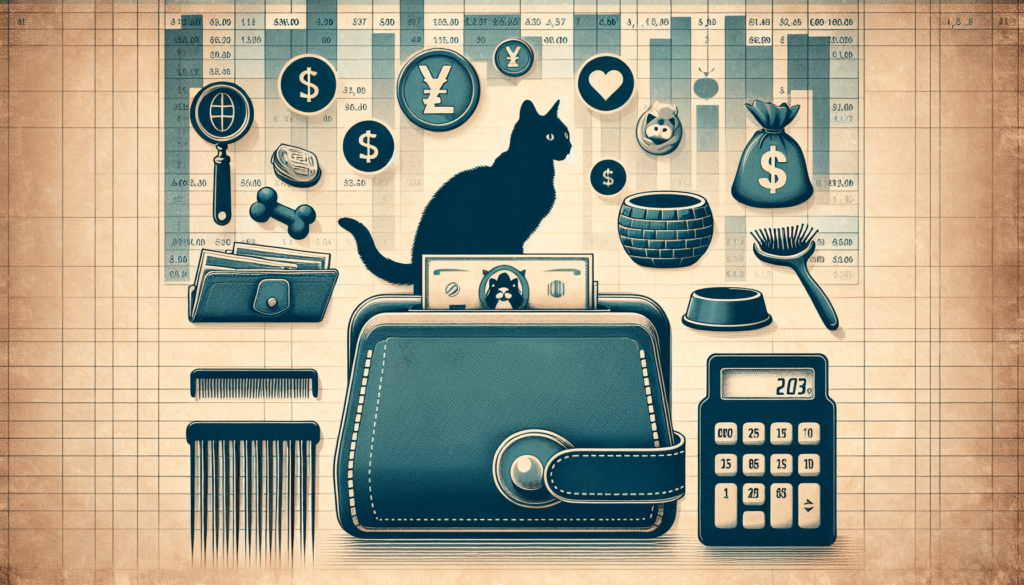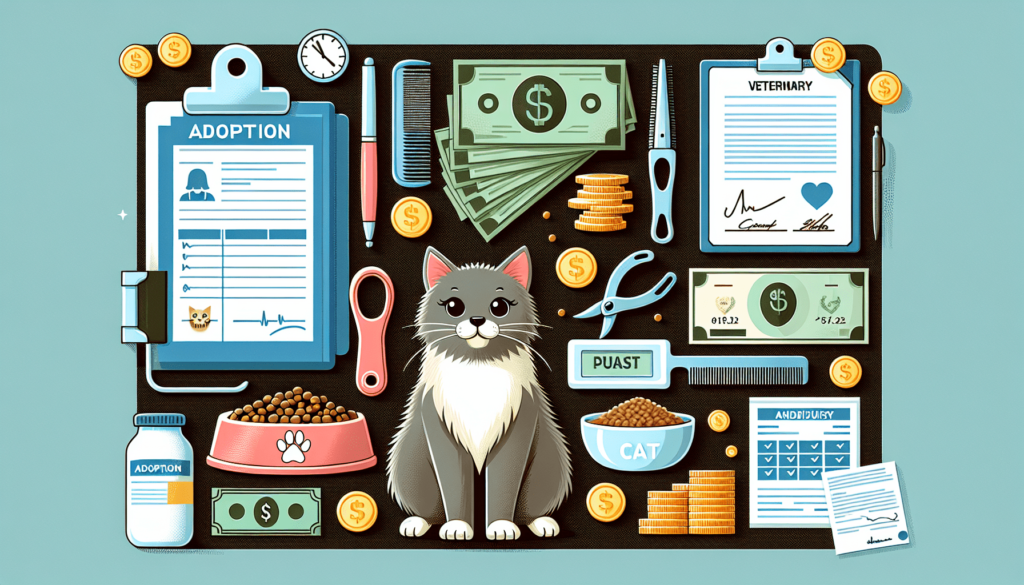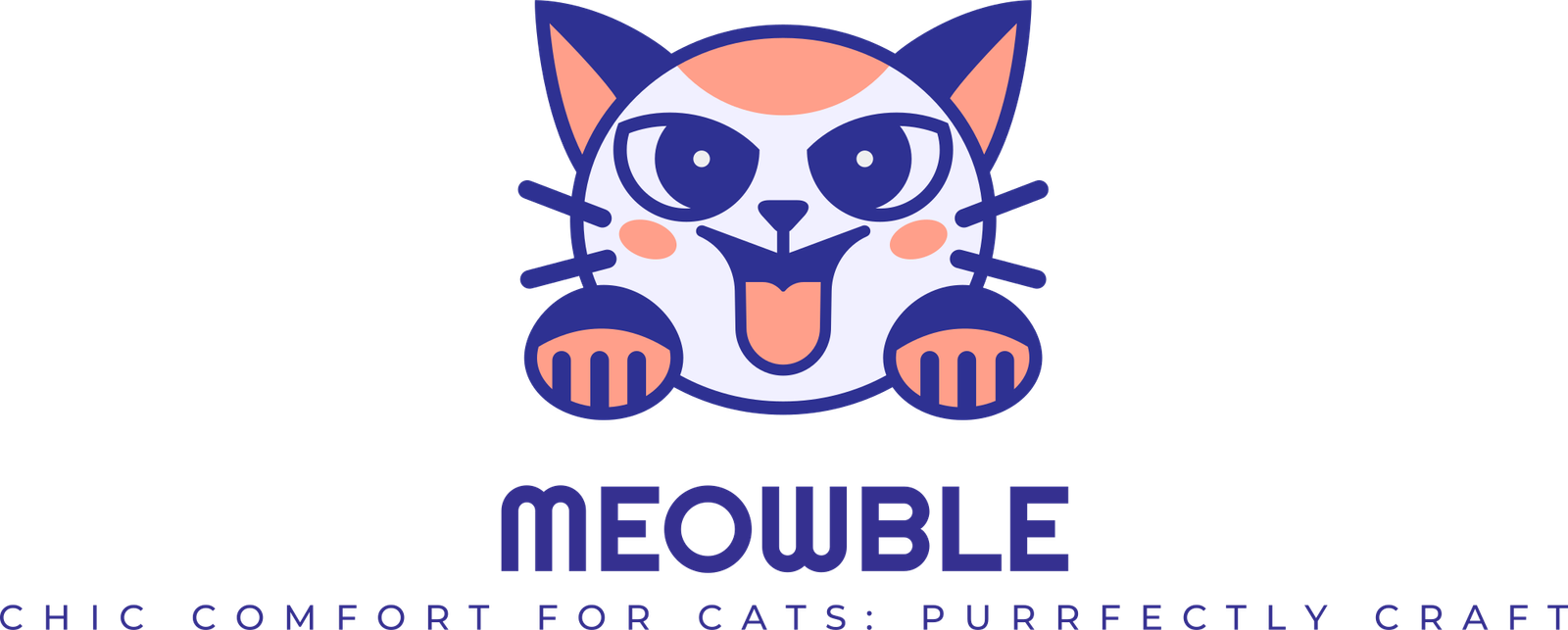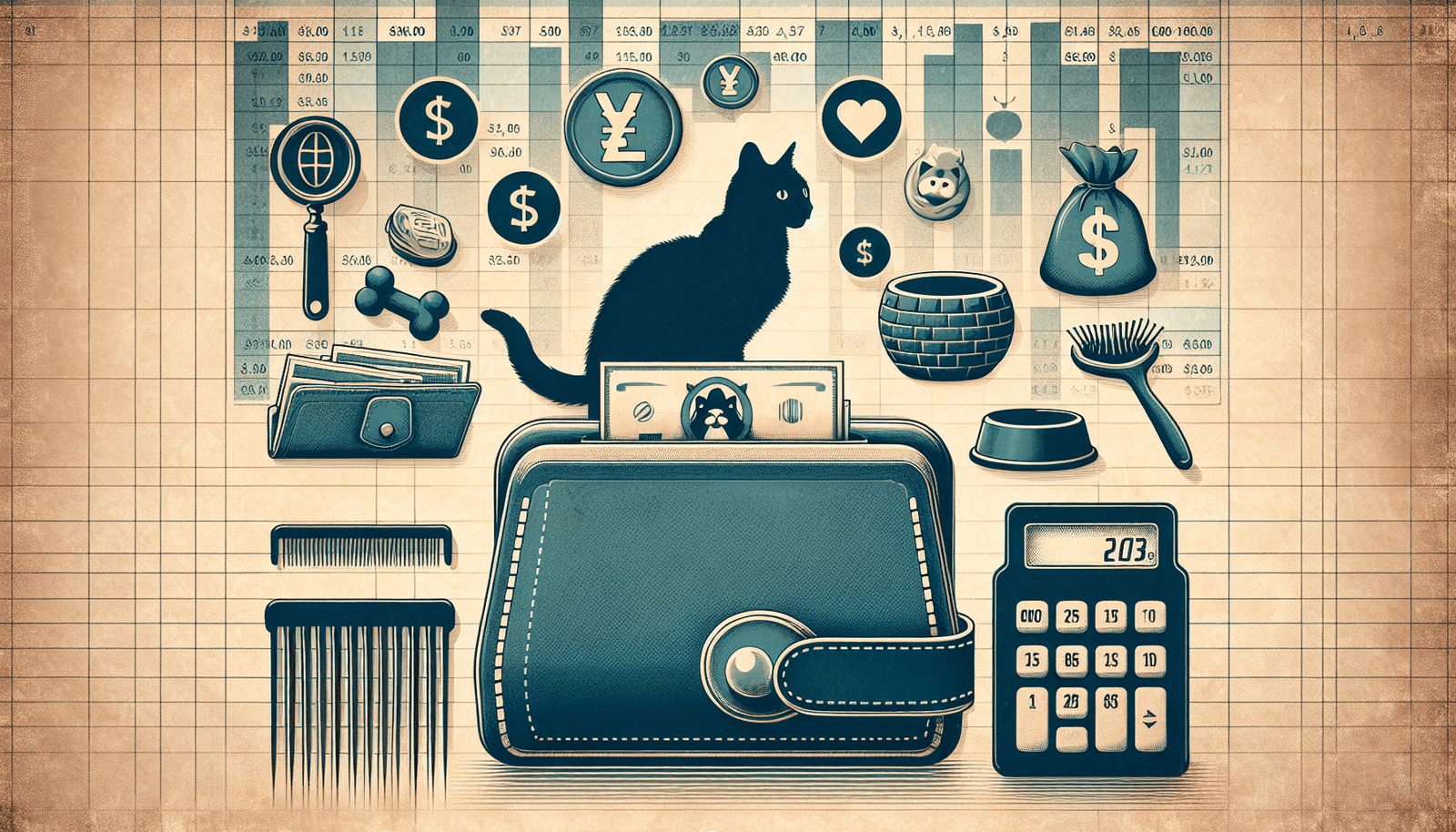How Much Does A Cat Cost
Are you considering adding a furry friend to your family? Before diving into the wonderful world of feline companionship, it’s important to understand the financial commitment that comes with it. In this article, we will explore the various costs associated with owning a cat, from initial adoption fees to ongoing expenses such as food, healthcare, and grooming. By the end, you’ll have a clear idea of how much it truly costs to bring a cat into your home and provide it with a happy, healthy life.

Initial Purchase Cost of A Cat
Cost of Adopting a Cat From a Shelter
When considering adding a furry friend to your family, one of the most important factors to consider is the initial cost. Adopting a cat from a shelter is often more affordable than buying one from a breeder. The cost of adopting a cat can vary depending on the shelter and location, but it typically ranges from $50 to $150. This fee usually includes the cat’s vaccinations, spaying or neutering, microchipping, and sometimes even a health check-up. Additionally, some shelters may include a starter pack of food and basic supplies to help you get started.
Price of Buying a Cat From a Breeder
Alternatively, if you decide to purchase a cat from a breeder, you can expect the price to be significantly higher. The cost of buying a cat from a breeder varies depending on the breed, pedigree, and the reputation of the breeder. Prices can range from a few hundred dollars to several thousand dollars. Keep in mind that this initial cost usually only covers the purchase of the cat and does not include additional expenses such as vaccinations, spaying or neutering, and microchipping.
Comparison of Adoption Vs Breeder Prices
When comparing the cost of adopting a cat from a shelter versus buying one from a breeder, there are a few important factors to consider. While adopting is generally more cost-effective, it’s important to remember that a higher initial investment from a reputable breeder may come with certain advantages. For instance, you may have more knowledge about the cat’s genetic history and potential health issues, which can be helpful for long-term budgeting and planning. Ultimately, the decision between adopting and buying should be based on personal preferences, budget limitations, and the desire to provide a loving home for a feline companion.
Cost of Cat Neutering or Spaying
Understanding Neutering and Spaying
Neutering refers to the surgical removal of a male cat’s testicles, while spaying involves the removal of a female cat’s ovaries and uterus. These procedures are commonly performed to prevent unwanted litters and provide various health benefits to the cat. Neutering or spaying your cat not only helps control the pet population, but it also eliminates the risk of certain reproductive diseases and reduces behavioral issues such as urine marking and aggression.
Average Cost for Neutering or Spaying a Cat
The cost of neutering or spaying a cat can vary depending on factors such as the gender of the cat, the clinic or veterinarian performing the procedure, and the geographical location. On average, the cost for neutering a male cat ranges from $50 to $200, while spaying a female cat can range from $100 to $400. It’s important to note that these prices often include the surgical procedure, pre-anesthetic bloodwork, anesthesia, pain medication, and post-operative care.
Factors Influencing the Neutering or Spaying Cost
Several factors can influence the cost of neutering or spaying a cat. These factors include the cat’s age, weight, breed, and overall health condition. Additionally, the specific clinic or veterinarian may have different pricing structures and package options. Some clinics may offer discounted prices for multiple cats or special promotions during certain times of the year. It’s advisable to consult with your local veterinarian or animal clinic to determine the exact cost and any available discounts or financial assistance programs.
Cat Vaccination Cost
Importance of Vaccinating Your Cat
Vaccinating your cat is crucial for their overall health and well-being. Vaccinations help protect your cat from various common and potentially deadly diseases, such as rabies, feline distemper, and feline leukemia. By ensuring that your cat is up to date on their vaccinations, you are not only safeguarding their health but also contributing to the prevention of the spread of these diseases within the feline community.
Types of Vaccinations
There are several core vaccinations that are recommended for all cats, including the rabies vaccine and the FVRCP vaccine, which protects against feline viral rhinotracheitis, calicivirus, and panleukopenia. Depending on your cat’s lifestyle and risk factors, additional vaccinations, such as the feline leukemia vaccine, may be recommended. The specific vaccination schedule and types of vaccines needed can be determined in consultation with your veterinarian.
Common Price Range for Cat Vaccinations
The cost of vaccinating your cat can vary depending on the region, the veterinarian, and the specific vaccines required. On average, the cost of core vaccinations for a cat can range from $50 to $100 per year. Additionally, some veterinarians offer discounted vaccination packages that may include other preventive care services. It’s important to discuss the cost of vaccinations with your veterinarian and ensure that your cat receives the necessary vaccines according to their individual needs.
Cat Food Expenses
Cost of Wet Cat Food
Cats have specific dietary requirements, and the cost of their food can vary depending on several factors. Wet cat food, which contains a higher moisture content and is often more palatable for cats, typically cost more than dry cat food. The price of wet cat food will vary depending on the brand, quality, and quantity. On average, the cost of wet cat food can range from $1 to $4 per can. Keep in mind that the nutritional needs of your cat should be the primary consideration when choosing their food, rather than solely focusing on price.
Cost of Dry Cat Food
Dry cat food, on the other hand, is typically more cost-effective than wet cat food. It also offers the benefits of dental health maintenance and convenient storage. The price of dry cat food varies based on the brand, quality, and quantity as well. On average, the cost of dry cat food can range from $10 to $30 for a 5 to 15-pound bag. It’s important to note that some cats may have specific dietary restrictions or health conditions that require specialized diets, which could potentially increase the cost of their food.
Factors Impacting Cat Food Costs
Various factors can impact the cost of cat food. The brand, quality, and ingredients used play a significant role in determining the price. Premium cat food brands that contain high-quality ingredients and are formulated to meet specific nutritional needs of cats may be more expensive. Additionally, any dietary restrictions, such as the need for grain-free or hypoallergenic formulas, can also affect the overall cost. Consulting with your veterinarian and considering your cat’s individual dietary needs can help you budget appropriately for their food expenses.

Cat Litter Cost
Types of Cat Litter
Providing a clean and comfortable litter box is essential for your cat’s hygiene and overall well-being. There are various types of cat litter available, each with its own advantages and price points. Clay-based litter, which is one of the most common types, is generally less expensive compared to other options. However, it may produce more dust and require more frequent cleaning. Silica gel litter, on the other hand, offers excellent odor control but tends to be more expensive. Other options include recycled paper litter, pine pellet litter, and natural-based litter.
How Often You Should Change Cat Litter
The frequency of changing cat litter depends on a few factors, including the number of cats using the litter box and the type of litter being used. As a general guideline, the litter box should be scooped at least once a day, and the entire litter should be changed every 1-2 weeks. Some types of litter, such as those that clump or have odor control properties, may allow for more extended periods between complete changes. It’s important to monitor the cleanliness and odor of the litter box to ensure your cat’s comfort and prevent potential health issues.
Cost Comparison Between Different Litter Types
The cost of cat litter can vary significantly depending on the brand, type, and quantity. Clay-based litter tends to be more affordable, with prices ranging from $5 to $20 for a 20-pound bag. Silica gel litter, with its superior odor control properties, generally costs more and can range from $15 to $30 for a 7 to 10-pound bag. Other specialty litters may have varying price points depending on their specific features and benefits. Considering your cat’s preferences, litter box maintenance, and budget can help you choose the most suitable option while managing costs effectively.
Routine Veterinary Care
Annual Check-ups
Routine veterinary care is an essential aspect of responsible cat ownership. By scheduling annual check-ups for your cat, you are proactively monitoring their health and addressing any potential issues before they become more serious and costly to treat. During these check-ups, your veterinarian will perform a thorough physical examination, update vaccinations, provide parasite prevention, and may recommend additional diagnostic tests based on your cat’s age and health condition.
Routine Deworming
Deworming is a common preventive measure recommended by veterinarians to keep your cat free from internal parasites such as roundworms, hookworms, and tapeworms. The cost of routine deworming can vary based on the medication prescribed, the number of doses required, and the overall health condition of your cat. On average, the cost of deworming medication can range from $15 to $35 per treatment, which may need to be administered every few months depending on your cat’s lifestyle and risk factors.
Purpose and Cost of Regular Blood Tests
Regular blood tests are an important part of routine veterinary care for cats. These tests help identify any underlying health conditions, monitor organ function, and ensure your cat’s overall well-being. The cost of regular blood tests can vary depending on the specific tests performed and the veterinary clinic’s pricing structure. On average, basic blood work can range from $50 to $150, but more comprehensive panels may cost up to $300 or more. While the cost may seem high, these tests provide valuable information and can help detect potential health concerns early on, saving you money in the long run.
Emergency Veterinary Expenses
Common Cat Emergencies
It’s crucial to be prepared for potential cat emergencies, as unforeseen accidents or illnesses can occur. Some common emergencies that may require immediate veterinary attention include trauma, poisoning, urinary blockages, difficulty breathing, and seizures. In these situations, prompt veterinary care is essential to ensure the best possible outcome for your cat’s health.
Price Range for Various Emergency Veterinary Services
The cost of emergency veterinary services can vary based on the severity of your cat’s condition, the treatment required, and the specific veterinary clinic or hospital. Emergency veterinary clinics often have higher consultation and treatment fees compared to regular appointments. On average, emergency veterinary visits can range from $200 to $1,000 or more, depending on the procedures performed and any additional diagnostic tests or medications required. It’s important to keep a budget in mind for potential emergency expenses and consider pet insurance to help mitigate these costs.
Cat Grooming Expenses
Importance of Regular Cat Grooming
Grooming plays a vital role in maintaining your cat’s overall health and appearance. Regular grooming can help prevent hairballs, matting, skin irritations, and other skin-related issues. Additionally, grooming sessions provide an opportunity for you to bond with your cat and monitor their physical condition, such as detecting any lumps, bumps, or abnormalities that may require veterinary attention.
Types of Cat Grooming Services
There are various cat grooming services available to address specific needs. Brushing and combing your cat’s fur at home is a simple and cost-effective way to maintain their coat. If your cat is prone to matting or has a longer coat, professional grooming services such as hair trimming or shaving may be required, which can cost anywhere from $30 to $100 or more, depending on the complexity and length of the grooming session. Additionally, nail trimming, ear cleaning, and dental care are also essential components of cat grooming that may require professional assistance.
Prices for Different Grooming Services
Specific grooming services may have different price points depending on the groomer’s experience, location, and the complexity of the service. As previously mentioned, basic grooming sessions, such as nail trimming or ear cleaning, may start at around $10 to $20. Full grooming sessions, including hair trimming or shaving, can range from $30 to $100 or more. It’s important to discuss your cat’s grooming needs with a professional groomer to determine the most suitable and cost-effective options.
Costs for Cat Accessories
Types of Cat Accessories
Cat accessories are essential for ensuring your feline companion’s comfort, entertainment, and well-being. Some common types of cat accessories include beds, scratching posts or trees, litter boxes, carriers, and interactive toys. These accessories provide opportunities for your cat to exercise, relax, and engage in natural behaviors.
Estimating the Cost for Cat Toys, Beds, Scratching Posts, Etc.
The cost of cat accessories can vary depending on the type, brand, and quality. Basic items such as litter boxes or basic scratching posts can start at around $10 to $20 each. Interactive toys, which help stimulate your cat’s mind and provide exercise, can range from $5 to $20 each. Beds or cozy resting spots can range from $15 to $50 depending on the size and material. Higher-end or designer accessories may have higher price points. It’s important to consider your cat’s preferences and needs when choosing accessories, ensuring they are safe and durable.
Potential Extra Costs
Cat Insurance
Cat insurance is an option to consider to help manage potential veterinary expenses. Insurance plans for cats generally cover unexpected illnesses, accidents, and emergencies, providing financial assistance for necessary treatments and procedures. The cost of cat insurance varies depending on factors such as the coverage limits, deductibles, and the age and breed of your cat. On average, monthly premiums can range from $20 to $50. However, it’s important to carefully review the terms and conditions of the insurance policy, including any limitations or exclusions, to determine if it is the right choice for you and your cat.
Training and Behavior Treatment Cost
Training and behavior treatment costs may vary depending on the specific training methods, trainers, and the complexity of the behavioral issue. Basic obedience training classes can range from $50 to $200 for a series of sessions. If your cat requires behavior modification or more specialized training, the cost may be higher and require multiple sessions. Consulting with a professional animal behaviorist or trainer can provide insights into your cat’s specific needs and help determine the most effective and cost-efficient training approach.
Travel Expenses When Moving with Cats
If you plan to move with your cat, it’s important to consider the potential travel expenses involved. This may include the cost of a suitable carrier, necessary vaccinations or health certificates, and transportation costs. The cost of a carrier can range from $30 to $100 depending on the size and features. Vaccinations and health certificates may vary depending on your destination and the veterinary clinic’s fees. Additionally, if you choose to use a professional pet transport or travel service, the cost can range from a few hundred dollars to over a thousand dollars, depending on the distance and specific requirements of your move.
Cost of Pet Sitting or Boarding
If you need to be away from home for an extended period or when you go on vacation, pet sitting or boarding services may be necessary to ensure your cat’s care and well-being. The cost of pet sitting or boarding can vary depending on factors such as the duration of the stay, the location, and the quality of the services provided. In-home pet sitting services can range from $15 to $30 per visit, while boarding facilities may charge anywhere from $20 to $50 per day. It’s important to carefully research and choose a reputable service provider that meets your cat’s specific needs and provides a safe and comfortable environment.
In conclusion, owning a cat brings immense joy and companionship, but it also comes with financial responsibilities. The initial purchase or adoption cost, along with ongoing expenses like food, litter, grooming, veterinary care, and potential emergencies or extra costs, should all be factored into your budget. By understanding the various costs associated with cat ownership and planning accordingly, you can ensure that you provide the best possible care and well-being for your feline friend while maintaining a budget that works for you. Remember, the love and joy a cat brings into your life are priceless!






